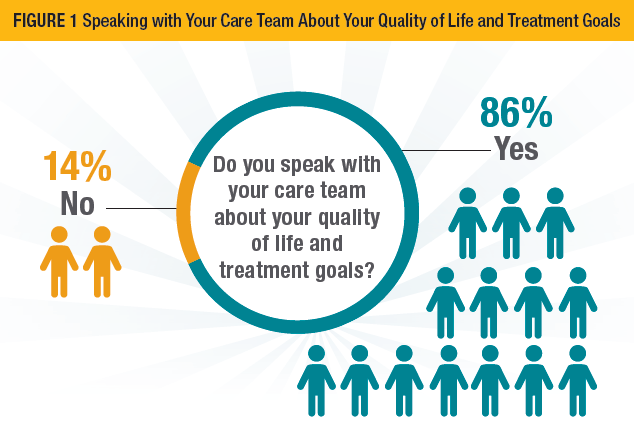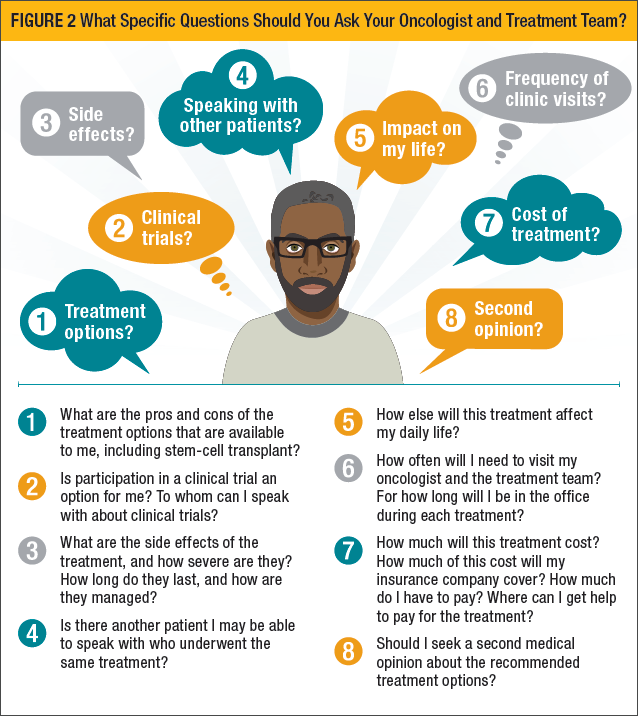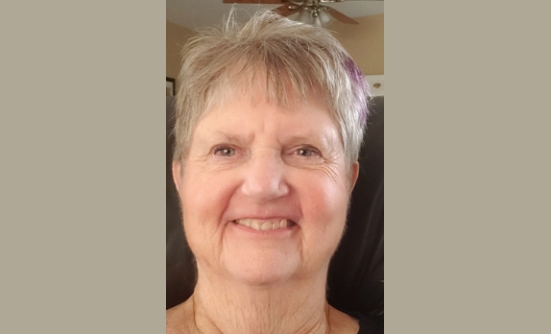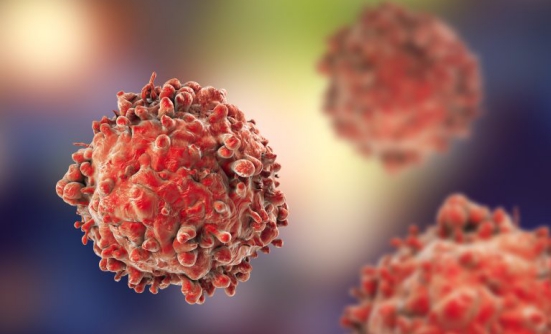This special feature and the Multiple Myeloma Patient Advocacy Roundtable were sponsored and moderated by Takeda Oncology.
Takeda Oncology is the oncology business unit brand of Takeda Pharmaceutical Company Limited. All trademarks are the property of their respective owners. ©2018 Millennium Pharmaceuticals, Inc., a wholly owned subsidiary of Takeda Pharmaceutical Company Limited.
Since you were diagnosed with multiple myeloma, you have undoubtedly heard and read all kinds of advice about how you should be treated. Your friends, loved ones, and work colleagues—your support team—as well as your treatment team, which includes your doctors, nurses, social workers, navigators, and other professionals, have so much information and advice to share. They all want to help you choose the course of action that is right for you.
But what is the best treatment approach for you? Who decides what “best” really means? Although you are not a multiple myeloma expert, your opinion counts. What role should you play in your treatment decisions? Is taking an active role in cancer treatment decisions important?
Shared Decision-Making in Cancer Care
In 2001, the Institute of Medicine, a nonprofit organization that provides health policy advice, suggested that the quality of cancer care improves when people who have been diagnosed with cancer share in decisions related to their treatment.1 Since that time, surveys of patients with cancer have shown that most patients prefer to play an active role in their treatment choices.2,3 Patients with cancer are less satisfied with the quality of their care when physicians determine their treatment without their input.3
So, patients with cancer are happier with their care when they participate in decisions about their treatment. But how do you do this? Who should you talk with to make sure that your voice is heard as treatment choices are being made? Where can you find the information that you need to communicate with your care team? This may seem daunting at first, but resources are available to help you take an active role in your multiple myeloma care.
An Internet-based survey that was conducted by Takeda Oncology and The Lynx Group in April and May 2017 showed that among more than 400 Americans with multiple myeloma, the majority (86%) had spoken with their treatment team about their treatment goals and how treatment may impact the quality of their lives (Figure 1).

When asked to list the treatment team members they speak with the most about these issues, patients listed their hematologist oncologists most often (78%), followed by primary care physicians (52%) and nurses or physician assistants (PAs; 41%).
A group of patient advocates, caregivers, nurse practitioners (NPs), and nurse navigators participated in the Takedasponsored Multiple Myeloma Patient Advocacy Roundtable. They discussed the survey results and provided personal insights on important topics, including shared decision-making in cancer treatment.
The study confirmed that patients are speaking to their care team, but the roundtable participants also question whether patients could comprehend the complex medical information provided.
One roundtable nurse participant commented, “We give patients a lot of information to digest. How do we know the level of information is right? How do we know that patients really understand it? We need to give patients time to digest the information, and then to ask questions. In our practice, we like the idea of someone in the treatment team contacting the patient before starting their first treatment. This gives the patient time to talk about the treatment plan, and helps us to know that the patient really understands how it may impact them.”
Shared Decision Making Tips
To help you and other patients with multiple myeloma, roundtable participants provided their perspective on shared decision making.
Treatment Team Members Involved in Shared Decision-making
In addition to you, your caregiver, and your hematologist oncologist, pharmacist, NP, PA, clinic nurse, nurse or patient navigator, social worker, and financial advocate, may all provide valuable input into treatment decisions based on their knowledge and experience in working with patients. In addition, a hematologist oncologist who specializes in multiple myeloma may consult on your case.
Important Medical Information to Consider
The hematologist oncologist typically outlines and explains your treatment options and other care team members, like the NP, PA, nurse, and navigator, will then follow up with you to help clarify this complex information.
The information you receive from your multiple myeloma team is likely to include the following:
- Understanding your type of multiple myeloma. Your treatment team may recommend testing to determine your specific type of multiple myeloma.
- The most common diagnostic tests use blood or bone marrow to evaluate the biological aggressiveness.
- Bone marrow testing can be used to identify damage to chromosomes in myeloma cells.4 These tests may be used to determine whether your multiple myeloma is a high-risk type. This may help determine the type of treatment that is appropriate for you.
- Evaluating your overall health status and comorbidities. Your age and other non-cancer health conditions, such as diabetes or heart disease, may play a role in determining which treatment option is best suited for you.
- Treatment options. Your treatment team should discuss the treatment options with you and with your caregiver. They should review the benefits and risks of each option, which may include combination therapy and/or stem-cell transplant. It’s important to understand your treatment plan, including how often you’ll have office appointments, how the therapy will be administered, and how long you will need to receive treatment.
- Clinical trials are also an important treatment option. Clinical trials are designed to study new drugs and help to advance our understanding of multiple myeloma. Ask your doctor if you have questions.
Important Nonmedical Information to Consider
There are also important non-medical issues to consider when making treatment decisions. In the survey mentioned earlier, nearly 60% of survey respondents indicated that multiple myeloma interferes with their daily lives considerably. Here are some things to think about:
- Are you working? More than one-third of survey respondents said that they retired or took long-term disability because of multiple myeloma, so it’s important to consider your finances and employment options as you begin your treatment. A nurse navigator or a social worker may help you to prepare to discuss your multiple myeloma diagnosis with your employer.
- Do you have one or more caregivers? You may need assistance with transportation to and from appointments, so it’s important to communicate your needs to your personal support team.
- What other things are important to you? You may have hobbies or other pursuits that are very important to you. When speaking to your treatment team, tell them about the activities that matter most to you, so they can recommend a treatment plan that is best for you.
Your Needs and References
The roundtable participants noted that your hematologist oncologist should offer specific treatment recommendations for you to consider after listening to your needs and preferences.
The group also recommended thinking over the treatment options presented to you; discussing with family members, fellow patients, and caregivers; repeating back what you learned from your healthcare team, and asking follow-up questions. One way to do this is to keep a diary to help you prepare for each appointment.
Figure 2 lists some important questions that you should consider asking your hematologist oncologist and other members of your treatment team.

What Could Hinder Shared Decision Making in Cancer Care?
Language barriers, healthcare complexities, and individual differences in patient and physician personalities can affect how much patients can participate in their own decision-making.
One roundtable participant suggested, “Individual personalities affect the chances of shared decision-making. Some patients are very proactive and have a ton of questions listed in their diary when they come into the office. They are ready for that dialogue with their doctors and nurses, and feel very comfortable with it.
Other patients come in and wait for the doctor to tell them what to do next. These patients seem less comfortable with the idea of participating in treatment decisions. Maybe they don’t feel comfortable to chime in, but they really are. They know themselves best.”
The roundtable participants highlighted the importance of a positive outlook throughout your multiple myeloma treatment journey. Remember that both parties—you (the patient) and your treatment team—need time to learn how to interact best with each other.
Be kind to yourself as you learn and sift through all the new information you receive. Take breaks. Ask your support team for help, and don’t be afraid to ask questions.
References
1. Institute of Medicine. Crossing the Quality Chasm: A New Health System for the 21st Century. Washington, DC: National Academies Press; 2001.2. Keating NL, Guadagnoli E, Landrum MB, et al. Treatment decision making in early-stage breast cancer: should surgeons match patients’ desired level of involvement? Journal of Clinical Oncology. 2002;20(6):1473-1479.
3. Kehl KL, Landrum MB, Arora NK, et al. Association of actual and preferred decision roles with patient-reported quality of care: share decision making in cancer care. JAMA Oncology. 2015;1(1):50-58.
4. Multiple Myeloma Research Foundation. Multiple myeloma diagnosis. www.themmrf.org/multiple-myeloma/diagnosis/. Accessed April 2, 2018.
More to Come
This is the third of 5 articles that highlight recommendations provided by participants in the Multiple Myeloma Patient Advocacy Roundtable. Look for the next article, which will provide specific insights on paying for your multiple myeloma care.
View all CONQUERing Myeloma™ articles















